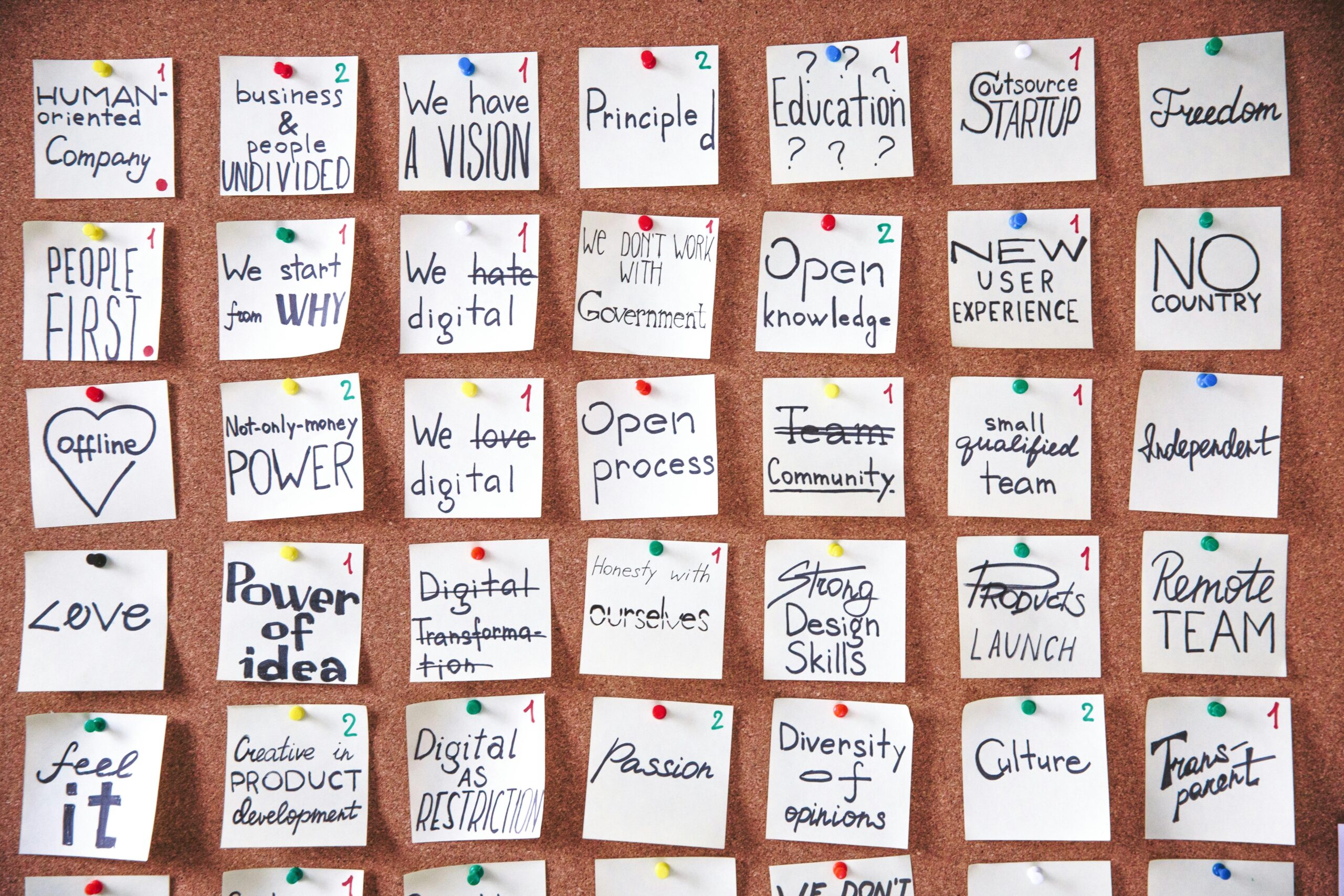Introduction: The Power of Honest Words
In a world full of noise and filters, honest words stand out like a breath of fresh air. Most relationships—whether personal or professional—struggle not because people don’t care, but because they don’t speak their truth. We often fear being judged, rejected, or misunderstood. But here’s the truth: real connection begins when we drop the mask. When we speak openly, we invite others to do the same. This article explores how truthful conversations can heal misunderstandings, strengthen trust, and create bonds that last. If you’re tired of surface-level talk, you’re in the right place
Why Truth Matters in Conversations
Truth builds trust—it’s the glue that holds real relationships together. When we speak honestly, we create emotional safety and invite others to do the same. Truthful conversations help people feel seen and understood, building a stronger bond over time. In contrast, hiding feelings or pretending creates distance. Whether it’s with a partner, friend, or coworker, speaking from the heart leads to deeper emotional intimacy. Studies show that honest communication fosters mutual respect and long-term connection. When your words align with your feelings, trust naturally grows—and that’s how meaningful relationships are born.
Barriers to Honest Communication
Honest conversations are often hindered by internal and external barriers. Fear of judgment or rejection can cause individuals to withhold their true feelings, leading to emotional distance. Past traumas or unresolved conflicts may also create walls, making vulnerability seem unsafe. Additionally, differences in communication styles—such as one partner being more direct while the other is more reserved—can lead to misunderstandings and avoidance of open dialogue . Recognizing these obstacles is the first step toward fostering an environment where truthful conversations can thrive.Verywell Mind.
How to Create Safe Conversation Zones
Creating a safe space for honest dialogue begins with setting clear intentions and ground rules. Establishing norms such as active listening, withholding judgment, and ensuring equal respect for all participants fosters an environment conducive to open communication . It’s essential to choose a neutral and comfortable setting, free from distractions, to facilitate meaningful conversations . Additionally, practicing empathy and being open to differing perspectives can help in building trust and emotional safety during discussions .UKG
Overcoming Challenges in Truthful Conversations (~100 words)
Honest conversations are not always easy, especially when emotio
ns run high. The fear of confrontation or causing pain can sometimes make us hold back. However, facing these challenges head-on is key to building a deeper connection. To navigate tough talks, focus on staying calm, and practice patience. Use “I” statements to express your feelings without accusing, and avoid blame.Take time to listen to the other person’s perspective, acknowledging their feelings before responding. By approaching difficult conversations with empathy, respect, and clarity, we can keep the dialogue constructive and maintain trust, even when the topic is sensitive.
Benefits of Honest Conversations for Personal Growth
Honest conversations don’t just improve relationships; they also promote personal growth. Being truthful forces us to reflect on our thoughts and feelings, helping us better understand ourselves.By expressing our true selves, we develop emotional resilience and increase self-awareness. Engaging in open dialogue challenges us to step out of our comfort zones, pushing us toward greater authenticity. It encourages vulnerability, which fosters growth in both our personal and social lives. When we embrace truth in our interactions, we create opportunities to evolve into more self-assured and emotionally intelligent individuals.
The Role of Honesty in Conflict Resolution
Honesty plays a crucial role in resolving conflicts effectively. When we are honest about our feelings and needs, we avoid misunderstandings and prevent minor issues from escalating. By addressing conflicts directly and respectfully, we encourage open discussion rather than bottled-up resentment.Sharing the truth also involves active listening, where both parties feel heard. When both individuals are clear about each other’s thoughts, they can find solutions together. In relationships, approaching conflicts with transparency helps build trust and prevents further issues, creating stronger, healthier connections over time.
 How to Build Trust Through Truthful Conversations
How to Build Trust Through Truthful Conversations
Trust is the cornerstone of any relationship, and it is nurtured through consistent, honest communication. When we speak truthfully, we show integrity, which helps others feel safe and valued in the relationship. Consistency in honesty is key; one truthful conversation can solidify trust, but ongoing openness ensures that trust continues to grow. Honesty encourages transparency, letting both parties understand each other’s boundaries, expectations, and feelings. The more we share openly, the more we reinforce trust. When trust is strong, relationships thrive, and deeper connections are formed.
How to Encourage Others to Be Honest
Encouraging honesty in conversations isn’t always easy, but it starts with creating a non-judgmental environment. When we approach others with empathy and active listening, we make it easier for them to open up. By being open and vulnerable ourselves, we set a positive example, showing that honesty is safe and welcomed.Reassure others that their truth will be respected, and acknowledge the courage it takes to speak honestly. Over time, as trust is established, others will feel more comfortable sharing their authentic selves, fostering more transparent and meaningful conversations.
Frequently Asked Questions (FAQs)
Q1: How can I start an honest conversation without offending someone?
A1: Begin with a calm and respectful tone, focusing on “I” statements rather than blaming or accusing. Make sure to listen actively, showing empathy for the other person’s feelings.
Q2: What if the other person isn’t open to honesty?
A2: It can be tough, but remain patient. Create a safe space for dialogue and express the importance of truthfulness in building trust. Over time, trust and honesty may foster mutual openness.
Q3: Can honest conversations really improve relationships?
A3: Absolutely! Honest communication fosters trust, transparency, and deeper emotional connections. It helps resolve conflicts and encourages personal growth, strengthening the relationship in the long run.
Q4: What if I’m afraid of the consequences of being too honest?
A4: Fear of consequences is natural, but honesty is necessary for growth. By expressing yourself with care and tact, you can minimize negative outcomes while fostering authentic connections.
Q5: How do I handle difficult topics in an honest conversation?
A5: Approach difficult topics with sensitivity and empathy. Use “I feel” statements and give the other person time to express their thoughts. Be patient and listen actively.
Q6: How do I know when it’s the right time for an honest conversation?
A6: The right time is when emotions are stable and both parties are ready to engage. If tensions are high, wait until everyone is calm enough to discuss openly and respectfully.
Q7: Can honesty hurt someone’s feelings?
A7: Honesty can be difficult to hear, but it is more constructive than hiding the truth. Be sure to deliver it gently and with empathy to reduce hurt feelings while maintaining openness.
Q8: How can I maintain honesty in a long-term relationship?
A8: Regular communication, expressing emotions openly, and listening with empathy help maintain honesty. Keeping the dialogue open and fostering trust encourages long-term transparency.
Q9: Is it okay to be completely honest all the time?
A9: While honesty is vital, timing and delivery matter. Sometimes, being too blunt or oversharing can create unnecessary tension. It’s important to balance honesty with consideration for others’ feelings.
Q10: How does honesty impact personal growth?
A10: Honest conversations help us reflect on our emotions, beliefs, and actions. They challenge us to grow, build self-awareness, and encourage emotional maturity, leading to overall personal development.
Conclusion
In conclusion, creating connection through truthful conversations is the cornerstone of building meaningful and lasting relationships. By embracing honesty, we nurture trust, foster emotional growth, and pave the way for deeper connections with others. Remember, while being truthful can be challenging, it is essential for cultivating respect, understanding, and empathy. Whether in personal or professional relationships, the power of honest communication cannot be overstated. So, take the first step today—engage in open, honest dialogue, and watch how your relationships flourish, grounded in trust and authenticity.





